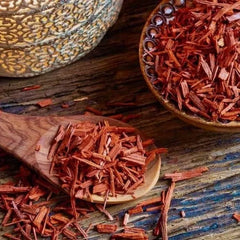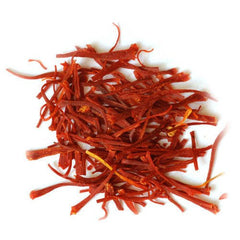What Does Citrus Smell Like?
Click For Affordable Inspired Perfume Alternatives

Embark on a fragrant journey through the sunny orchards of citrus groves and discover the invigorating scents that define the world of citrus. Known for their lively and zesty aromas, citrus fruits bring a burst of freshness that captivates the senses. Join us as we explore the question: What does citrus smell like?
The Citrus Symphony
Picture yourself in a citrus orchard, surrounded by trees laden with vibrant fruits. The scent of citrus is a symphony of bright and uplifting notes, creating a sensorial experience that is both energizing and delightful.
The first impression of citrus is like a sunlit explosion, reminiscent of the sun-kissed peels of oranges, lemons, and grapefruits. The fragrance is an immediate burst of radiance that invigorates the senses, much like the warmth of a summer day. Citrus radiance is the signature opening act that sets the stage for the citrus symphony.
The heart of citrus fragrance is a dance of zesty brilliance. Imagine the lively tango of lemon and lime, the tanginess of grapefruit, and the sweetness of orange intertwining in a delightful choreography. The zesty brilliance of citrus notes creates an effervescent and dynamic aroma that is both refreshing and captivating.
While known for their tartness, citrus fruits also bring a sweet harmony to their fragrance. The scent is a delicate balance between the sharpness of citrus peels and the underlying sweetness that adds depth to the composition. This sweet citrus harmony is the secret to the well-rounded and addictive nature of citrus fragrances.
Delve deeper into the scent of citrus, and you'll encounter a juicy burst that mimics the experience of biting into a ripe piece of fruit. The aroma carries the essence of freshly squeezed citrus juices, creating a mouthwatering and invigorating olfactory experience. This juicy citrus burst adds a layer of freshness that lingers on the skin.
Citrus fragrances are known for their versatility and timeless appeal. Whether used as a standalone note or blended with other aromatic elements, citrus scents have an enduring popularity that transcends seasons and occasions. The allure of citrus is its ability to evoke feelings of freshness and vitality.
Factors Influencing Citrus Fragrance Composition
Understanding the factors that influence citrus fragrance composition can provide insights into the diverse and complex world of citrus scents.
-
Citrus Variety: Different citrus fruits, such as lemon, lime, orange, grapefruit, and bergamot, contribute unique aromatic profiles to citrus fragrances.
-
Ripeness: The stage of ripeness influences the intensity and character of the citrus scent, with riper fruits often offering a sweeter aroma.
-
Citrus Essential Oils: The extraction method of citrus essential oils, whether cold-pressed or steam-distilled, contributes to the freshness and authenticity of the fragrance.
-
Blending with Other Notes: Citrus notes are often blended with florals, woods, or spices to create complex and nuanced fragrances.
-
Synthetic vs. Natural Components: Perfumers may use a combination of synthetic and natural ingredients to achieve the desired citrus aroma, balancing authenticity and cost considerations.
-
Geographical Origin: Citrus fruits grown in different regions may exhibit subtle variations in fragrance due to variations in soil, climate, and cultivation practices.
Choosing Citrus Fragrances: What to Consider
When selecting citrus fragrances, consider the following factors to ensure a high-quality and authentic olfactory experience:
-
Citrus Authenticity: Seek fragrances that authentically capture the fresh, zesty, and vibrant characteristics of citrus fruits.
-
Blend Ingredients: Check the blend of ingredients in the fragrance, aiming for a well-crafted combination of natural and synthetic components.
-
Intensity Level: Consider the intensity level of the citrus fragrance, aligning it with your preferences for a subtle or more pronounced aroma.
-
Versatility: Choose fragrances that are versatile and suitable for various applications, from perfumes to candles and room sprays.
-
Packaging: Opt for fragrances packaged in dark or opaque bottles to protect the oil from light exposure, preserving its freshness.
-
No Residue or Discoloration: Ensure that the citrus fragrance leaves no residue or discoloration when used in different products.
-
Manufacturer Reputation: Research the reputation of the manufacturer or brand to ensure reliability and quality.
-
Testing Options: Look for fragrances that offer testing options or sample sizes to experience the scent before committing to a larger quantity.
-
Ethical and Sustainable Practices: Consider the manufacturer's commitment to ethical and sustainable practices for a conscientious choice.
Where to Find Reputable Citrus Fragrances
Explore these sources to find high-quality citrus fragrances for your various applications:
-
Specialty Perfume Retailers: Shops specializing in unique and exotic fragrances often carry a selection of citrus scents.
-
Online Fragrance Platforms: Reputable online platforms dedicated to fragrances, perfumes, and essential oils offer a wide range of citrus options.
-
Artisanal Markets: Attend artisanal markets or craft fairs where independent sellers showcase handmade and unique citrus fragrances.
-
Local Essential Oil Shops: Specialty shops focusing on essential oils or natural scents may carry a variety of citrus fragrances.
-
Aromatherapy Stores: Explore aromatherapy stores for citrus essential oils and blends designed for therapeutic purposes.
-
Specialty Candle and Soap Supply Stores: Shops dedicated to candle and soap making often stock a variety of citrus fragrance oils.
-
Farmers' Markets: Local farmers' markets may have vendors offering handmade citrus fragrances with a focus on natural ingredients.
-
Word of Mouth: Seek recommendations from friends, family, or fragrance communities for trusted sources of citrus fragrances.
By considering these factors and exploring reputable sources, you can find the perfect citrus fragrance to add a touch of freshness and vitality to your olfactory journey. Whether you're creating a custom perfume, scented candles, or room sprays, the bright and zesty notes of citrus will undoubtedly elevate your sensory experience.
Buy Perfumes - Best Online Retailers
Click For Affordable Inspired Perfume Alternatives
Click For The Best Niche Perfumes & Decants
Pheromone Perfumes - Confidence, Attraction & Appeal - Click For More
Home Fragrances & Candle Warmers - Click To Scent Up Your Spaces Today!



